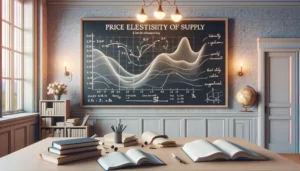The world of economics, vast and multifaceted, has numerous branches that serve to understand and interpret economic behaviors, systems, and phenomena. Among the many branches, positive economics and normative economics emerge as two fundamental realms. These realms diverge in their approaches, assumptions, and end goals. This article aims to dive deep into the distinctions, applications, and intertwining relationships of these two concepts.

✅ AI Essay Writer ✅ AI Detector ✅ Plagchecker ✅ Paraphraser
✅ Summarizer ✅ Citation Generator
Understanding Positive Economics
Positive economics is often referred to as the “what is” of economics. It revolves around objective explanations and the analysis of phenomena without personal feelings, interpretations, or value judgments. Here, economists are primarily concerned with establishing cause-and-effect relationships. For example, a statement like “A higher minimum wage can lead to higher unemployment” would be a product of positive economics.
- Key Features: Positive economics relies heavily on verifiable facts and data. It aims to describe economic behaviors and relationships as they are, devoid of any judgments or prescriptions. For instance, assessing the GDP of a country or understanding the economic impact of government-provided healthcare would fall under this realm.
- Prominent Economists: Many economists, including the likes of Amartya Sen, have often interwoven their research between positive and another branch called development economics. Their objective analyses provide a foundation upon which policy decisions can be made.
Delving into Normative Economics
In contrast, normative economics is rooted in the “what ought to be” of economics. It encompasses value judgments about what the economy should look like or what particular policy actions should be recommended to achieve a desirable goal. For example, stating “The government should provide healthcare because it’s a basic right” is a product of normative economics.
- Key Features: Normative economic statements cannot be proven or disproven solely by reference to facts. They hinge on value judgments. Discussions around economic fairness, whether a higher minimum wage is ‘good’, or if government-provided healthcare is ‘right’, are firmly in the normative economics camp.
- Subjectivity in Normative Economics: An often-discussed aspect is how normative economics is subjective. This subjectivity arises because what might be a desirable economic outcome for one individual might not be the same for another. Normative economists, therefore, frequently grapple with debates around fairness, rights, and justice.
Where Positive and Normative Intersect
The dichotomy between positive and normative economics can sometimes appear rigid. However, in practical applications, they often intersect. Positive economics provides the data and objective foundation upon which normative decisions can be based. Conversely, normative economics often drives the questions that positive economics seeks to answer.
For instance, while positive economics might assess the impact of a policy on GDP, normative economics would debate the value and fairness of such a policy. Both are essential for a holistic understanding of economic phenomena.
The Role of Value Judgment
Value judgment is an intrinsic part of normative economics. Whether it’s debating the merits of a policy, such as a higher minimum wage, or discussing broader topics like economic fairness, value judgments permeate these discussions. On the other hand, while positive economics endeavors to be devoid of biases, it’s essential to recognize that no analysis is entirely free from some form of value judgment. The very choice of what economic factors to study or how to approach a question can be influenced by underlying values.
In Conclusion
Positive and normative economics, while distinct in their approaches and methodologies, are two sides of the same coin. Both are vital in shaping our understanding of the economy and guiding policy decisions. While positive economics seeks to explain the world as it is, normative economics challenges us to envision the world as it could be. Together, they provide a comprehensive framework for understanding the complex tapestry of economic behaviors, systems, and phenomena.
FAQ
Follow us on Reddit for more insights and updates.





Comments (0)
Welcome to A*Help comments!
We’re all about debate and discussion at A*Help.
We value the diverse opinions of users, so you may find points of view that you don’t agree with. And that’s cool. However, there are certain things we’re not OK with: attempts to manipulate our data in any way, for example, or the posting of discriminative, offensive, hateful, or disparaging material.